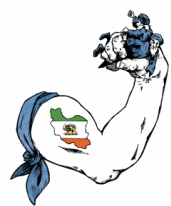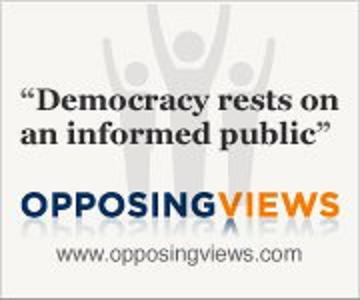Topic: Islamic Jihad
An Afghan-American Woman Speaks Out

"If the world had "listened" and paid attention to Afghanistan before, then the trade towers might have been standing today"..
Valentina Marano
Washington, DC—By most accounts, women did quite well in post-conflict Afghanistan. The new Constitution recognizes their standing as equal to that of men, they can both vote and run for office, even as the head of state. There are women broadcasters as well as television and radio programs dealing exclusively with women’s issues, NGOs run and geared towards women, women professors, and women ministries. However, many challenges remain if all Afghan women are to fully and freely reach their potential within the Afghan society.
On August 1, Washington Prism met with Ms. Maryam Qudrat Aseel to discuss challenges and opportunities facing Afghan women today, her experiences as a successful Afghan-American woman, the future of Afghanistan, and the many misunderstandings challenging relations between the East and the West. Hers is a message of hope.
Ms. Aseel is an activist and spokesperson in the Afghan-American and Muslim communities. She founded the first high school chapter of the Muslim Students Association, and has recently founded the Afghan Institute for Development. Ms. Aseel got her Ph.D. in philosophy at the University of Southern California. She is currently working as Director of Education and Women's Affairs at the Afghan Embassy in Washington, DC.
Washington Prism: What are the main challenges facing Afghan women today?
Maryam Qudrat: The women of Afghanistan have proven themselves to be resilient as they have worked through decades of war and strife to secure the sanctity and normalcy of their families. Prior to the wars, Afghan women were given many opportunities and occupied seats in Parliament and were appointed to the cabinet during the 1960s. Under the new administration led by President Karzai, Afghan women are once again guaranteed fundamental rights by the new constitution and they are working to bring those rights to life as they are currently running for seats in the upcoming Parliamentary elections scheduled for September 18, 2005.
The main challenges facing women today vary across a wide spectrum ranging from health, education and employment arenas. Afghan women continue to experience the highest levels of maternal mortality rates and are in need of greater access to and availability of quality healthcare. There is also a need for more female healthcare providers and a more effective maternal care system. As for education, more schools are needed in order to increase women’s access to education throughout the nation. In addition, appropriate curricula needs to be devised to assist the unique challenges of Afghan women who have been deprived of schooling, and to reintegrate them into academia so that they can compete for jobs against all applicants, including Afghans who lived abroad during the wars. In terms of employment, Afghan women are gaining many opportunities in society, and they are often preferred over male applicants. Although there is an upward trend towards progress in women’s condition in Afghanistan, snapshot indicators point to the fact that current women’s conditions still require the greatest support.
WP: The improvement of women’s life conditions is a fundamental aspect of Afghanistan's reconstruction process. Has this vigorous approach to gender issues ever been perceived as too Westernized and, therefore, in contrast with Afghan cultural traditions?
MQ: Afghan women are concerned with meeting basic human needs and wants. They want to lead hopeful lives in neighborhoods that are safe with access to schools for their children, clean drinking water and job opportunities. Essentially, they aspire to live dignified lives again now that there is a revival of an effective state. These aspirations transcend culture and ethnicity as they are basic human needs of all people. Women of Afghanistan are focused on these matters first and foremost. Matters of cultural dress, burqas, and veils are not their priority as they are striving for educational and economic empowerment. It is important to judge Afghan women’s achievements in relation to their own framework, paying attention to those issues that they themselves assert as their primary concerns. What the women of Afghanistan are truly in need of are the skills and tools necessary for them to be able to meaningfully translate their theoretical rights into practical experiences. After being pushed out of society for so many years, Afghan women need to be educated on what their rights mean and how to exercise those rights. Afghan women require the training and the empowerment tools necessary to be able to emerge as leaders in this new and hopeful era of their country.
WP: In your book Torn Between Two Cultures: An Afghan-American Woman Speaks Out you write: “My own life is a testimony to the fact that ideologies of the East and West are not truly at war – only their people are. And these people are at war because they don’t know each other. If they don’t know each other how can they understand each other?” What does the West fail to understand about the East (and vice versa) today? How can this “comprehension gap” be successfully bridged?
MQ: I believe that this new relationship that Afghanistan and the international community have embarked upon has afforded the entire world an opportunity to engage in dialogue and mutual understanding of values that share so much in common and yet are so often mistakenly perceived as incompatible. I do believe that the sources of our conflicts are rooted not in religion or culture but in politically motivated extremist ideologies which were injected into Afghanistan from the outside. These external forces are what the country has been fighting to free itself from and this fight against extremism is what President Karzai has often outlined as a common interest between Afghanistan and the rest of the world. The President has also said that if the world had “listened” and paid attention to Afghanistan before, then the trade towers might have been standing today and the bombings in London could have been averted. Understanding Afghanistan and the lessons that come from it is essential to the success of today’s global strives toward a more peaceful world.
WP: At a speaking engagement during his visit to Washington, DC, President Karzai stated that "Afghanistan needs to speak more money and less politics," meaning that Afghanistan should concentrate on its economic development, rather than on regional power politics. How does the newly created Strategic Partnership with the United States help Afghanistan to achieve this goal?
MQ: The signing of the Joint Declaration of Strategic Partnership between President Karzai and President Bush was a great achievement for Afghanistan, as much as the signing of a Strategic Partnership between President Karzai and Tony Blair. These are long term safety nets that will prevent our country from being plagued by new external negative influences. As a result, they are historic achievements that will remain intact for generations to come and their effects will manifest themselves over time and not just in the single or isolated efforts of today’s immediate post-conflict reconstruction of Afghanistan.
Posted by ky/kentuckydan
at 2:20 AM CDT
| Post Comment | Permalink | Share This Post
Updated: Sunday, 3 June 2007 6:34 AM CDT
| Post Comment | Permalink | Share This Post
Updated: Sunday, 3 June 2007 6:34 AM CDT

















